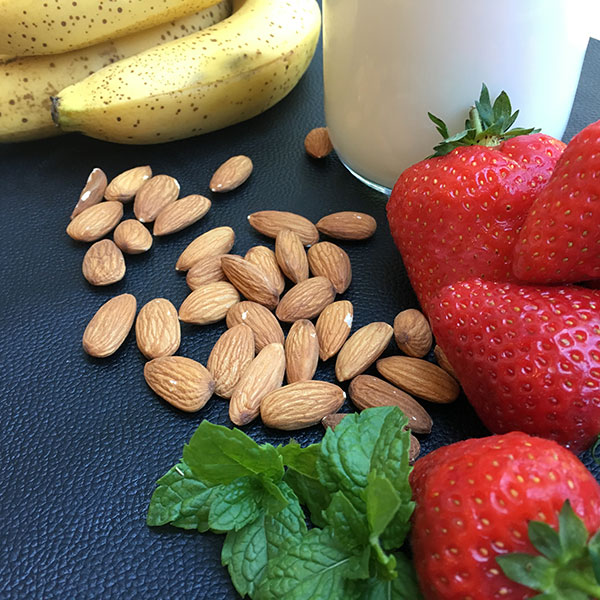
Osteoporosis is a preventable disease. Although there are certain factors that are out of our control, our diet & lifestyle play an important role in protecting our bones from becoming fragile.
A balanced diet and healthy lifestyle form an early age can help prevent osteoporosis which although mainly affects post-menopausal white women can also affect those suffering from anorexia and nutritional deficiencies. Osteoporosis develops slowly over time and is usually asymptomatic until severe backache starts or a minor fall results in a fracture, typically of the hip, wrist or vertebrae, so a nutrient rich diet can help build string bones from infancy.
Unfortunately, some risk factors are out of our control:
Genetic factors: daughters of women with osteoporosis have lower bone density while women of african origin have greater bone density.
Low oestrogen levels caused by childlessness, late puberty, early menopause (without hormone replacement therapy) or secondary amenorrhoea (no menstruation for 6 months)
Certain prescription drugs including heparin, cortisone or prednisone, aluminium–containing antacids and lithium can negatively affect bone density.
But there are many things in our power to improve our bone health:
Maintain a healthy BMI as being underweight has been linked to lower bone density
Exercise regularly, especially weight bearing exercise such as dancing, running or hiking, as being active reduces the rate of bone loss.
Adequate vitamin D which helps calcium absorption, especially before adolescence since afterwards calcium absorption declines and after the age of 30, there is no increase in bone mass and a gradual reduction starts. Check out our Vitamin D post.
What should a bone-friendly diet include?
Calcium-rich foods such as dairy products, nuts (walnuts, almonds), sesame seeds, green vegetables (broccoli, cabbage, spinach), canned sardines and salmon.
Vitamin K- rich foods such as asparagus, Brussels sprouts, broccoli, cabbage, onions, lettuce, peas as it is involved in bone formation.
Oily fish (salmon, mackerel) at least 2x per week * as they are rich in omega-3 oils which protect bone mineralization.
If you are pregnant or planning to get pregnant in the future limit your oily fish intake to 2 portions a week as it contains heavy metals and pollutants that may harm your baby.
Increase the ratio of vegetable/animal protein such as soy, beans and pulses as animal protein (meat, eggs, fish, dairy) as it may increase acidity in the body which would be compensated by the bones leaching calcium.
Include soy in your diet as it contains phytoestrogens, that contribute to increased bone density, and calcium
What to avoid to reduce your risk of developing osteoporosis?
As you’ve probably guessed some of the elements of modern life and diet: sugar, excessive slat, caffeine, alcohol and stress do not support tring bones…
Avoid refined sugar (ready meals, take aways, confectionery, fizzy drinks, cakes and biscuits, white bread and pasta) as sugar increases calcium excretion
Reduce coffee as caffeinne is a diuretic and increases calcium excretion
Reduce your salt intake as high salt consumption results in increased calcium excretion.
Stop smoking as it reduces bone density.
Drink alcohol in moderation as alcoholic drinks reduce bone density, the absorption of calcium and the conversion of vitamin D to its active form.
Manage your stress as high levels of cortisol, the stress hormone, have been linked to lower bone density.